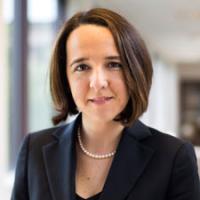Archive for February 2015
Low Energy Nuclear Physics Research at LLNL
SPEAKER: PROF. DR. J.T. BURKE NUCLEAR AND PARTICLE PHYSICS GROUP NUCLEAR AND CHEMICAL SCIENCES DIVISION LAWRENCE LIVERMORE NATIONAL LABORATORY DATE/TIME: MON, 02/23/2015 – 4:00PM TO 5:00PM LOCATION: 3105 ETCHEVERRY HALL Spring 2015 Colloquium Series Abstract: The low energy nuclear physics program at LLNL consists of a myriad of accelerator based and table top experiments. Studies include nuclear structure,…
Read MoreInstigating a Nuclear Cost Culture
SPEAKER: RODNEY M. ADAMS, M.S. PUBLISHER, ATOMIC INSIGHTS HOST, THE ATOMIC SHOW DATE/TIME: MON, 02/09/2015 – 4:00PM TO 5:00PM LOCATION: 3105 ETCHEVERRY HALL Spring 2015 Colloquium Series Abstract: The nuclear industry has a long history of avoiding the topic of effectively controlling costs when designing structures, systems and components and when devising operational concepts. This history is rooted…
Read MoreConsortium for Verification Technology
SPEAKER: DR. SARA POZZI DIRECTOR, DETECTION FOR NUCLEAR NONPROLIFERATION GROUP DEPARTMENT OF NUCLEAR ENGINEERING AND RADIOLOGICAL SCIENCES UNIVERSITY OF MICHIGAN DATE/TIME: MON, 02/02/2015 – 4:00PM TO 5:00PM LOCATION: 3105 ETCHEVERRY HALL Spring 2015 Colloquium Series Abstract: The Consortium for Verification Technology (CVT), consists of thirteen leading universities and nine national laboratories, working together to provide the research and development…
Read More
